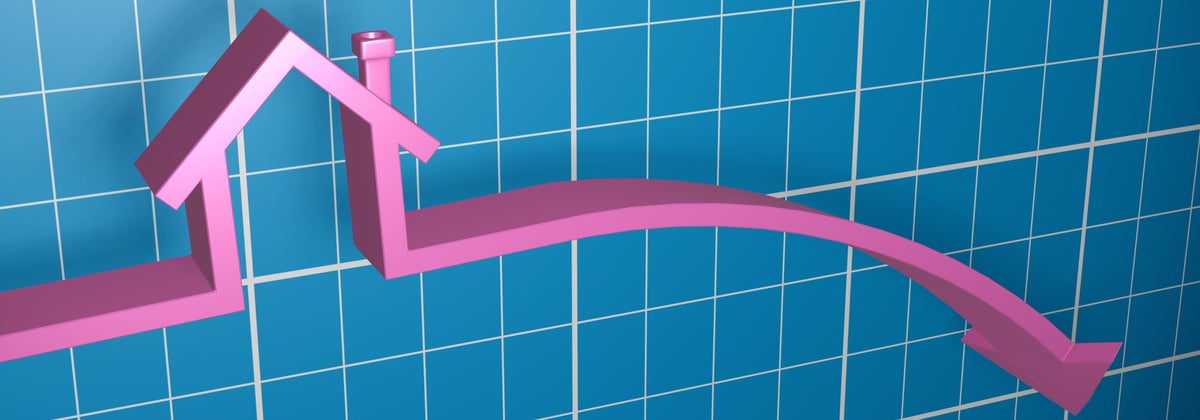
We are starting to see commentators and even the Reserve Bank talk about falling house prices towards the back-end of next year. We should not be surprised that none of them are from real estate companies who bring the figurative cocaine to the house party. Here is my perspective on house prices from the frontline.
As I’ve written consistently, there’s an unbreakably strong correlation between house prices and mortgage rates. Property educationalists, economists, spruikers would have you believe that house prices always go up, and that the proof is the past 30 years. They’re not generally smart enough to realise that interest rates have been decreasing the past 30 years. Or they are just selectively biased with their insights.
There are only three fundamental reasons why house prices go up
- Increasing incomes
- Decreasing borrowing costs
- A supply shortfall
Number three is critical. It’s the process of having to compete with other buyers that pushes up prices. Homebuyers are prepared to pay more, and more again, for the same house.
Household incomes have been going up and, over time, that supports higher house prices, at least in terms of affordability. On average, incomes have gone up by about 4% per year.
However, the biggest driver of house prices by far has been declining interest rates, from around 9% in the 1990s to around 3%, now.
Back last year, just after the last lockdown, I predicted that the average house price in New Zealand would hit $1m by 2030. Over the past six months, that prediction almost came true, as house prices rocketed to $920,000. And my prediction still has eight years to run!
My forecast was based on a mortgage rate of 4%, which is broadly where rates are predicted to head over the next two years. So it anticipates the need for rates to eventually increase.

Terraced housing developments pushing prices up
The kicker for house prices over the past year has been a huge jump in the development of in-fill terraced housing. The value of entry-level townhouses has risen and, as a result, has pushed up the value of 800m² subdividable land.
Developers have been tripping over each other, clambering for sites in what has become the latest gold rush.
Like any gold rush, there are resource constraints: high steel prices, high timber prices, high prices, full-stop. Not helped, of course, by post-COVID supply chain and shipping issues.
Higher price signals encourage suppliers to increase production, investors to sell land at record prices, and developers to landbank for continuity of supply.
 But economic cycles tend to overshoot
But economic cycles tend to overshoot
Eventually, homebuyers will start to dry up; there will be an over-supply of houses; and increased competition will squeeze prices and margins.
Importantly, there is no shortage of developable land.
I’ll caveat that with we still have incompetent councils that make it hard to build anything. We’ll call this the “mindless bureaucratic tax” that is rife in government and which consistently drags down New Zealand’s productivity.
Meanwhile in the real world, with the loss of tax-deductibility on existing rentals, higher tax bills, higher interest costs, and higher costs from healthy homes and council rates, there are likely to be more property investors selling into the market.
An oversupply of new terrace housing at the same time as more land comes onstream equals lower prices. That’s what the Reserve Bank is predicting will happen at the back end of next year.
I’m banking on any oversupply being short-lived. This is a short-term, cyclical outcome against a backdrop that house prices will largely stay steady. Any price fall will gradually recover and then increase to $1 million by 2030.
 John Bolton founded Squirrel in 2008. He is a former General Manager at ANZ, where he was responsible for the bank’s $60bn of retail lending and deposits. He has 10 years of senior banking experience behind him in financial markets, treasury, finance, and strategy, and is a director of Financial Advice New Zealand, the industry body for financial advisers.
John Bolton founded Squirrel in 2008. He is a former General Manager at ANZ, where he was responsible for the bank’s $60bn of retail lending and deposits. He has 10 years of senior banking experience behind him in financial markets, treasury, finance, and strategy, and is a director of Financial Advice New Zealand, the industry body for financial advisers.
Enjoy reading this article?
You can like us on Facebook and get social, or sign up to receive more news like this straight to your inbox.
By subscribing you agree to the Canstar Privacy Policy




Share this article